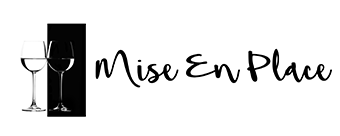Mastering Language & Communication in Hospitality
Hotel Language Courses: A Strategic Investment
Offering Multilingual Services
Hotel language courses enable staff to offer multilingual services, catering to a diverse clientele. From front desk interactions to in-room services, language proficiency enhances guest experiences.
Investing in language training ensures that staff can communicate effectively with guests from various linguistic backgrounds.
Customized Language Training
Customized language training tailored to the specific needs of the hotel industry ensures that staff learn relevant vocabulary and expressions.
From handling reservations to addressing guest inquiries, targeted language courses equip staff with the skills needed for their roles.
Communication Skills in Hospitality: Beyond Language
Verbal and Non-Verbal Communication
Communication skills in hospitality go beyond language proficiency. Verbal and non-verbal communication, such as tone of voice, body language, and facial expressions, play a crucial role.
Training staff in these aspects of communication ensures that they convey warmth and professionalism in every interaction.
Active Listening and Empathy
Active listening and empathy are vital communication skills in hospitality. Staff must be trained to listen attentively to guests’ needs and respond with understanding and compassion. These skills build trust and enhance guest satisfaction, turning ordinary interactions into memorable experiences.
Multilingual Hotel Staff: A Competitive Edge
Attracting a Global Audience
Multilingual hotel staff attract a global audience, making the hotel appealing to travelers from various countries. Offering services in multiple languages sets the hotel apart from competitors and resonates with international guests.
Cultural Sensitivity and Awareness
Multilingualism often comes with cultural sensitivity and awareness. Staff who understand different languages and cultures can provide more personalized and respectful service. This cultural competence adds depth to guest interactions and enhances the overall guest experience.
Enhancing Guest Communication: A Continuous Effort
Regular Training and Assessments
Enhancing guest communication requires regular training and assessments. Ongoing language courses, workshops, and evaluations ensure that staff maintain and improve their communication skills. This continuous effort fosters a culture of excellence and keeps the hotel’s communication standards high.
Leveraging Technology
Technology can also enhance guest communication. Tools like translation apps and multilingual chatbots provide additional support for staff and guests. Leveraging technology ensures that communication remains smooth and efficient, even when language barriers exist.
Language Training Benefits: Tangible and Intangible
Improved Guest Satisfaction
Language training benefits include improved guest satisfaction. When staff can communicate effectively in various languages, guests feel understood and valued. This proficiency leads to positive reviews and repeat business, contributing to the hotel’s success.
Personal and Professional Growth
Language training also offers personal and professional growth opportunities for staff. Learning new languages and communication skills enhances their confidence and career prospects. Investing in staff development reflects positively on the hotel’s brand and fosters a motivated and skilled workforce.









